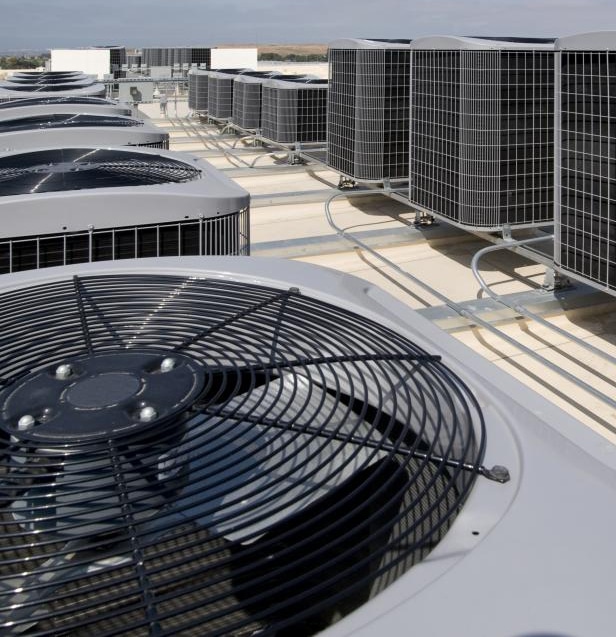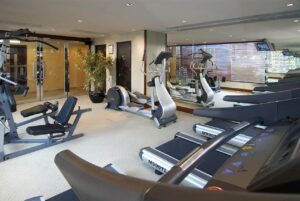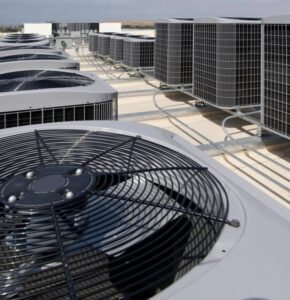Ventilation: the Most Important Skill of HVAC Specialists
When considering HVAC (Heating, Ventilation, and Air Conditioning), most people immediately think of heating and cooling. However, the “V”—ventilation—is equally important. Proper ventilation is essential for maintaining good indoor air quality, ensuring comfort, and protecting the health and well-being of building occupants. Whether in homes, offices, or public buildings, effective ventilation is a critical component of any HVAC system.

Why is Ventilation So Important in HVAC Systems?

Ventilation is the process of supplying fresh outdoor air into a building while removing stale indoor air. This exchange is crucial for maintaining an environment free of pollutants, allergens, and other harmful particles that can compromise air quality. Here are some key reasons why ventilation is essential in HVAC systems:
- Improving Indoor Air Quality (IAQ): Ventilation helps remove airborne contaminants, such as dust, allergens, and volatile organic compounds (VOCs), which can cause respiratory problems and other health issues. Proper ventilation ensures that fresh, clean air circulates throughout a space, improving overall air quality.
- Controlling Humidity Levels: Excess moisture in the air can lead to mold growth, wood rot, and other damage to a building’s structure. Effective ventilation helps control humidity levels, reducing the risk of these problems and contributing to a healthier indoor environment.
- Enhancing Comfort: Adequate ventilation ensures a steady flow of fresh air, contributing to a comfortable indoor climate. It prevents the build-up of odors and provides a fresh and pleasant atmosphere.
- Reducing Energy Consumption: A well-ventilated space requires less effort from the HVAC system to maintain a comfortable temperature. By improving air circulation, ventilation helps the HVAC system operate more efficiently, reducing energy consumption and lowering utility bills.
- Protecting Building Integrity: Proper ventilation prevents moisture accumulation, which can damage the building’s structure and materials. Over time, excess moisture can cause decay, mold growth, and structural damage, leading to costly repairs.
- Compliance with Health and Safety Standards: Many local building codes and health regulations mandate proper ventilation to ensure occupants’ safety and well-being. Ensuring compliance with these standards is crucial for property owners.
Advanced Ventilation Techniques for Modern Buildings
New ventilation strategies and technologies have emerged with the growing awareness of indoor air quality and energy efficiency. Implementing these advanced techniques can significantly improve a building’s indoor environment and reduce energy costs. Here are some of the latest ventilation approaches:
1. Balanced Ventilation Systems
Balanced ventilation systems, such as Heat Recovery Ventilators (HRVs) and Energy Recovery Ventilators (ERVs), are designed to provide fresh air and exhaust stale air at equal rates. These systems recover heat from the outgoing air to preheat the incoming fresh air, reducing the load on the HVAC system and improving energy efficiency. They are particularly effective in climates with extreme temperatures.
2. Demand-Controlled Ventilation (DCV)
Demand-controlled ventilation systems adjust the ventilation rate based on the number of occupants or the concentration of indoor pollutants. These systems use sensors to monitor air quality indicators, such as carbon dioxide (CO2) levels, and regulate ventilation rates accordingly. DCV systems are ideal for spaces with varying occupancy levels, such as offices, conference rooms, and auditoriums.
3. Natural Ventilation
Natural ventilation relies on passive methods, like windows, vents, and architectural design elements, to facilitate air exchange. This strategy is energy-efficient and cost-effective, although it may not be suitable for areas with extreme climates or high pollution levels.
4. Spot Ventilation
Spot ventilation focuses on specific areas where pollutants or moisture are generated, such as kitchens, bathrooms, or laundry rooms. Exhaust fans and range hoods can help remove contaminants and excess moisture from these spaces, contributing to improved indoor air quality.
5. Air Filtration and Purification
Air filtration and purification systems, such as High-Efficiency Particulate Air (HEPA) filters, are highly effective in removing fine particles, allergens, and contaminants from indoor air. Regular maintenance and use of high-quality filters can significantly improve air quality and reduce the risk of respiratory issues.
6. Optimized Ductwork Design and Maintenance
Proper ductwork design, sealing, and insulation are critical for efficient ventilation. Regular maintenance, such as cleaning ducts and inspecting for leaks, helps ensure optimal airflow and energy efficiency.
7. Smart Controls and Automation
Smart thermostats and automated control systems can optimize HVAC performance by adjusting ventilation rates based on real-time data, such as occupancy, time of day, or indoor air quality. These smart controls can enhance comfort while reducing energy consumption.
Practical Tips for Maintaining a Healthy and Efficient HVAC System
To maximize the benefits of your HVAC system, including its ventilation capabilities, consider the following practical tips:
- Regular Maintenance: Schedule routine maintenance checks with a qualified HVAC technician to identify potential issues before they escalate into major problems.
- Clean and Replace Filters: Regularly clean or replace air filters to ensure optimal airflow and air quality. Clogged or dirty filters strain the system, reducing its efficiency and increasing energy costs.
- Seal Ductwork: Inspect ducts for leaks or gaps, and seal them properly. Leaky ducts can lead to energy loss and reduced ventilation efficiency.
- Monitor Humidity Levels: Use dehumidifiers or humidifiers as needed to maintain an optimal indoor humidity level, preventing mold growth and structural damage.
- Keep Outdoor Units Clean: Clear debris and vegetation around outdoor units to ensure proper airflow and system efficiency.
- Use Ceiling Fans: Ceiling fans can help distribute conditioned air more evenly, reducing the workload on your HVAC system.
- Install a Programmable Thermostat: A programmable thermostat can help regulate indoor temperature more efficiently, reducing energy consumption and maintaining comfort.
Real-World Impact: The Importance of Ventilation in Bergen County, NJ
Ventilation plays an even more crucial role in areas like Bergen County, NJ, where pollution levels can be high due to heavy traffic, industrial activities, and seasonal allergens. With busy routes such as Routes 17, the New Jersey Turnpike, and the Garden State Parkway running through the region, pollutants like automotive exhaust, pollen, and mold spores are prevalent. This makes it essential for homes and businesses to have adequate ventilation systems to ensure healthy indoor air quality.
Poor air quality can result in various health issues, from mild allergies to more severe respiratory conditions. Symptoms like coughing, sneezing, shortness of breath, and headaches can often be traced back to inadequate ventilation. By investing in proper HVAC systems and employing advanced ventilation strategies, Bergen County residents can protect their health and enjoy a more comfortable living environment.
In summary, ventilation is a crucial component of an HVAC system, as it impacts indoor air quality, comfort, energy efficiency, and overall building health. Proper design, installation, and maintenance of ventilation systems are essential to ensure optimal performance and the well-being of occupants.
Updated Ventilation Strategies
Several up-to-date ventilation strategies and techniques can help improve indoor air quality, energy efficiency, and comfort. Here are some modern ventilation tricks to consider:
- Balanced Ventilation Systems: These systems use supply and exhaust fans to bring in the fresh air and remove stale air at equal rates. The most common balanced ventilation systems are Heat Recovery Ventilators (HRVs) and Energy Recovery Ventilators (ERVs). They recover heat and energy from the exhaust air, reducing energy consumption and costs.
- Demand-Controlled Ventilation (DCV): DCV systems adjust ventilation rates based on the number of occupants and the level of indoor pollutants. They use sensors to monitor carbon dioxide (CO2) levels or other air quality indicators and adjust the ventilation rate, ensuring optimum indoor air quality and energy efficiency.
- Natural Ventilation: This strategy uses passive techniques, such as windows, vents, or architectural design, to facilitate the flow of fresh air into a building. It can be an energy-efficient way to maintain indoor air quality and comfort, although it may be less effective in certain climates or heavily polluted areas.
- Spot Ventilation: This technique targets areas or rooms where pollutants or moisture are generated, such as kitchens or bathrooms. Installing exhaust fans or range hoods in these areas can help remove pollutants and moisture, improving indoor air quality.
- Air Filtration and Purification: Using air filters or cleaners can help to remove pollutants, allergens, and other contaminants from the air, improving indoor air quality. Ensure filters are maintained regularly and use high-quality filters, such as HEPA filters, for best results.
- Proper Ductwork Design and Maintenance: Ensuring your ductwork is correctly designed, sealed, and insulated is crucial for efficient airflow and energy efficiency. Regular maintenance, such as cleaning and inspection for leaks, can also help maintain proper ventilation and indoor air quality.
- Smart Thermostats and Controls: Using smart thermostats and other control systems can help optimize your HVAC system’s performance, including ventilation. These devices can be programmed to adjust ventilation rates based on various factors, such as occupancy or time of day, leading to improved energy efficiency and indoor air quality.
Consider the specific needs of your building and its occupants when implementing these ventilation techniques. A combination of strategies may be necessary to achieve the best results. Consulting with an HVAC professional can help you determine the most appropriate and effective ventilation solutions for your space.
Fresh Air – We often take it for granted. But have you ever walked into a public gymnasium or a movie theatre or even an airplane and noticed that the air smelled “stale”? It’s more than just stale, it probably is loaded with the invisible germs of the dozens of people that were there before you arrived. It’s not only bad to smell but also unhealthy to breathe.
Healthy air is necessary for all circumstances where people throughout Bergen County gather. It can be business offices, yoga studios, buses, trains, and everywhere else where people exchange their unhealthy air with others.
Realistically, we can’t fix them all. By law, airlines, classrooms, and public transportation must install and replace filters to minimize the involuntary sharing of germs, viruses, and other airborne medical infections.
Call the Professionals: Muccia Plumbing, Heating & AC

When it comes to HVAC services in Bergen County, NJ, Muccia Plumbing, Heating & AC is your trusted partner. We have been serving the community since 1978, offering a full range of HVAC services, including ventilation solutions, heating and cooling system installations, maintenance, and repairs. Our experienced team understands the unique challenges of maintaining good indoor air quality in this region and can provide tailored solutions to meet your needs.
Whether you need a comprehensive HVAC inspection, a ventilation system upgrade, or regular maintenance to ensure your system operates efficiently, Muccia Plumbing, Heating & AC is here to help. We work with all major HVAC brands and offer services that fit every budget.
Why Choose Muccia Plumbing, Heating & AC?
- Expertise and Experience: Our team comprises trained and certified technicians who bring years of experience and knowledge to every job.
- Comprehensive Services: From routine maintenance to complex installations, we offer a full range of HVAC services.
- Customer-Focused Approach: We prioritize your satisfaction and provide high-quality, affordable solutions tailored to your needs.
- Reliable and Prompt Service: We understand the importance of a comfortable indoor environment and respond quickly to service calls.
Breathe Easier with Muccia Plumbing, Heating & AC
Don’t let poor indoor air quality compromise your health and comfort. Contact Muccia Plumbing, Heating & AC today to schedule a consultation. Let our professionals assess your current HVAC system, recommend improvements, and provide the best solutions to enhance your indoor air quality. Contact us at 201-343-1414 for comfort and health is our top priority, and we are here to help you breathe easier.
About Muccia Plumbing, Heating & AC

Based in Bergen County, New Jersey, Muccia Plumbing, Heating & AC has been serving the community since 1978. Founded by Michael Muccia, a Master Plumber, our company is dedicated to providing high-quality HVAC services, including heating, cooling, and ventilation solutions for both residential and commercial clients. We pride ourselves on our commitment to customer satisfaction and our ability to deliver reliable, efficient, and cost-effective services.
Choose Muccia Plumbing, Heating & AC for all your HVAC needs, and experience the difference that quality service makes.

